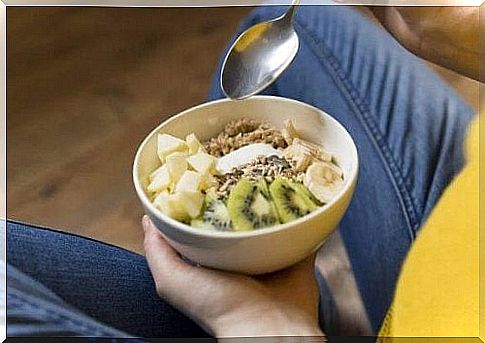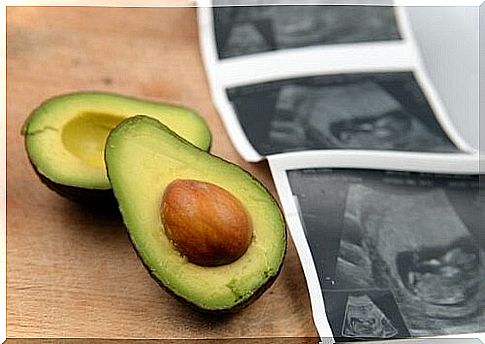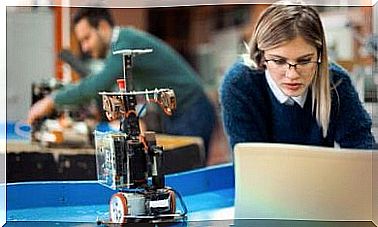6 Healthy Foods That Reduce Discomfort During Pregnancy

Did you know that your diet can help reduce discomfort during pregnancy? Here we will tell you more about the healthy foods you can eat to, for example, relieve nausea.
It is normal to feel discomfort during the first three months of pregnancy. In general, you may experience common symptoms such as nausea, vomiting and acid regurgitation. But if they persist, you can suffer from dehydration and this has a negative impact on the child’s development.
Fruits and other foods that help reduce discomfort during pregnancy
Eating fruits and other nutritious foods during pregnancy will help you feel better. It also contributes to your child’s health and thus to a better quality of life.
Here is a list of foods that will help you reduce discomfort during pregnancy.
Milk and other dairy products
Dairy products contain important calcium, so by eating more dairy products you do not suffer from usur and your child gets good bone development. Milk is also a source of protein.
“What if I’m lactose intolerant?” can you ask then. You can still eat yogurt given that the bacteria help regulate the digestive system, fight infections and improve your immune system.
In fact, you can avoid certain complications that can occur during pregnancy by eating probiotic foods. They help relieve discomfort and can also completely prevent preeclampsia, swelling, vaginal infections and allergies.
Egg
Eggs are important in a healthy diet because of their protein content, which is needed for cell growth and regeneration of certain organs.
In addition , eggs contain lots of vitamins and minerals such as phosphorus, vitamin B12 and choline, a basic substance for brain development.
If you are worried about cholesterol in eggs, you should know that it is not unhealthy; it is natural! However, you should avoid foods that contain saturated fats.
Avocado
Lack of folic acid during pregnancy can cause severe neural tube defects in the baby. One of these is spina bifida and to avoid it it is important that you take folic acid before you get pregnant.

Avocados are a good source of folic acid. It is actually one of the fruits with the highest content of folic acid and B9 as well as C, B and K.
It also contains iron, magnesium, fiber and potassium. Potassium works to relieve leg cramps.
Avocados also contain oleic acid which helps to form skin tissues and your baby’s brain.
Dried fruits
Dried fruits are good and very nutritious. Their high fiber content prevents constipation. They are also rich in folic acid, iron and potassium.
The most popular are plums, raisins, figs, dates and peaches but there are others as well. These fruits have the same nutrients as their fresh counterparts, the only difference being that their water content has been removed.
If you eat 6 dates every day, you increase your chances of having a natural birth, which means that you reduce the probability of having to start the birth.
Meat
Eat white and lean meat during pregnancy. To avoid fat in your meat, do not buy minced meat and do not cook chicken with the skin left.
Meat is one of the best things you can eat to reduce discomfort during pregnancy, especially fatigue and overall low energy. This is because the body has an increased blood production, up to 50%. It requires iron for your body to function properly. If there is not enough iron in your blood, you may suffer from anemia.
Eating meat gives you most of the iron you need every day. There are also other foods that are high in iron such as beans, legumes and vegetables, especially green vegetables and dried fruits. But it is still important that you take extra supplements.
Fish
The most recommended fish to eat during pregnancy is salmon. It is rich in omega-3 fatty acids that are essential in the formation of the retina and brain.
A baby who gets the right amount of omega-3 has better focus, learns faster and is more social.
Omega-3 also improves your baby’s vision and prevents heart disease, paralysis, developmental disabilities and autism.

Tips to avoid complications
Food is a great way to reduce discomfort during pregnancy. However, remember the following:
- Do not consume caffeine
- Avoid greasy and spicy foods
- Take your time and chew your food slowly during each meal
- drink a lot of water









